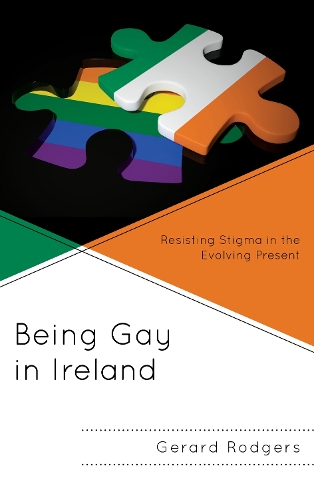
Being Gay in Ireland: Resisting Stigma in the Evolving Present
(Hardback)
Publishing Details
Being Gay in Ireland: Resisting Stigma in the Evolving Present
By (Author) Gerard Rodgers
Bloomsbury Publishing PLC
Lexington Books
20th June 2018
United States
Classifications
Professional and Scholarly
Non Fiction
Psychology of gender
306.766209417
Physical Properties
Hardback
228
Width 157mm, Height 237mm, Spine 20mm
467g
Description
In Being Gay in Ireland: Resisting Stigma in the Evolving Present, Gerard Rodgers argues that existing theory and research on the lives of gay men often exhibits a social weightlessness such that self-beliefs are frequently decoupled from an analysis of society. History and conventions inform and shape gay mens self-beliefs, yet psychology as a discipline rarely dialogues with historical or political scholarship. Rodgers corrects this oversight with a critical analysis of the decades of socio-political struggle in Ireland and elsewhere. Rodgers captures the lives of gay men who are situated in varied contexts and who all, despite their different situations, possess self-beliefs that are shaped by wider historical traditions and evolving social change. Rodgers argues that the nuances and particulars of self-beliefs are significantly affected by wider historical traditions and evolving social and political changes. Through his reconstruction, Rodgers provides practitioners of applied psychological and therapeutic disciplines with an in-depth picture of how historical context and social justice successes have interacted with gay mens self-beliefs, with a particular focus on how prosocial resistances against prejudice have incrementally eroded historical standards of gay stigma.
Reviews
Being Gay in Ireland is a necessary, explosive, and very timely book. Rodgers most compelling tool is his patient, systematic reasonableness. This measured, thoughtful approach makes his depiction of the lives that gay men have been constrained to lead utterly devastating. The stories he explores tell of stigma and survival, discrimination and determination, humanity and hope. This book matters to everyone, gay or not, who cares about the kind of country Ireland has been, the people we are today, and how we can shape a better future for all. -- Brendan Kelly, Trinity College Dublin
Being Gay in Ireland is a valuable addition to sociology of sexuality and social change. Powerfully combining theories from sociology and psychology, the author documents the lasting effects of oppression while recognizing the broader social changes that have occurred. Drawing on the rich data of in-depth interviews with a small number of diverse gay men, the book highlights the influence of religion and the importance of contextualizing people's experiences of sexuality and identity within their social location. In so doing, the author offers a number of strategies for achieving more progress in the future. -- Mark McCormack, University of Roehampton, London
Author Bio
Gerard Rodgers, PsyD, is based in Dublin.
